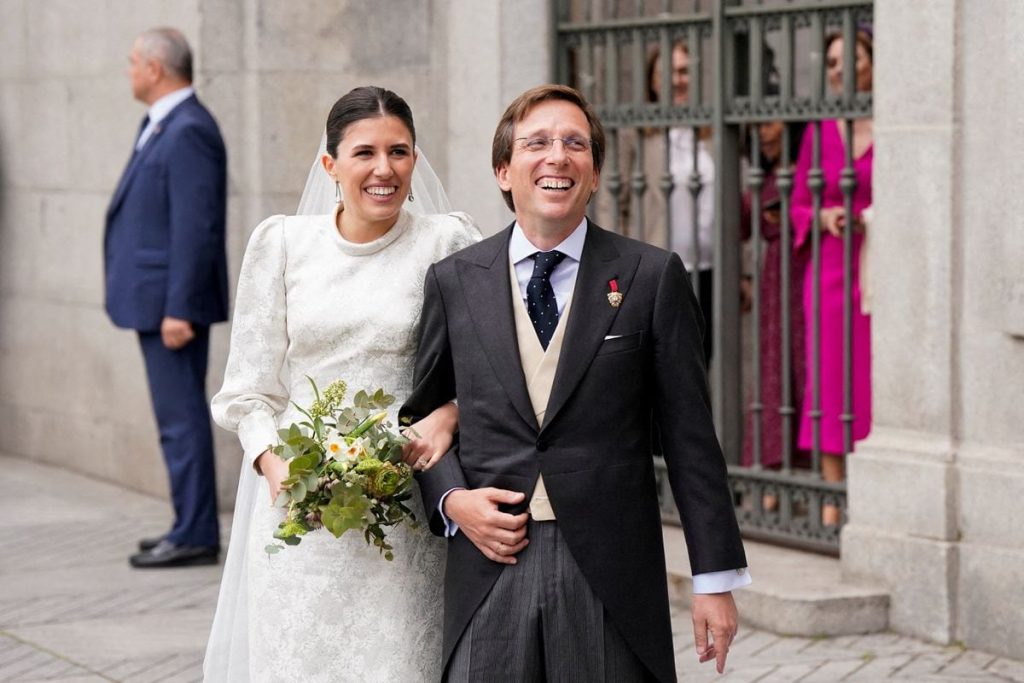The attention of the media has been captured by the bloody imagery of Holy Week, even in a secular state. As Easter processions pass by, weddings also draw interest, especially when involving prominent, wealthy, popular, or aristocratic individuals. The recent wedding of Madrid’s mayor, José Luis Martínez-Almeida, to Teresa Urquijo has kept him in the spotlight for days, with both joy and insults spreading online. This event has sparked a debate on the functioning of elites, politics, and civil service, highlighting issues of power and ruling classes.
A journalist and writer, Javier Benegas, initiated a thread on social media discussing Almeida’s background as a lawyer for the State and part of a family with a long history of the same profession. He pointed out the elite upbringing and political affiliation of the mayor, aligning him with a certain class of society. Comparisons are made to figures like Margaret Thatcher, who despite her controversial economic policies, demonstrated a better understanding of people due to her background as a shopkeeper. This thread raises questions about the perpetuation of elite status and privileges through generations, which is especially evident in societies like Spain with a history of classism.
The reaction to Benegas’s thread has been divided, with some criticizing the implication that being a lawyer for the state is a hereditary privilege. Others, like former Vox MP Macarena Olona, defend the profession and emphasize the rigorous exams and dedication required to become an Abogado del Estado. The debate extends to the broader issue of political leadership, with some arguing that a higher academic level, such as that of a lawyer for the state, should be expected from politicians. However, others point out that the ability to dedicate time and resources to such pursuits often depends on having a privileged background.
The discussion brings attention to the politicization of the civil service system in Spain, where obtaining a position like that of a lawyer for the state can lead to further political opportunities. The focus shifts to evaluating politicians based on their actions and commitments rather than their educational background or professional achievements. The debate underscores the complex intersection of power, privilege, and meritocracy in shaping the country’s leadership and elite class, highlighting the challenges of promoting social mobility and meritocratic principles in a society with deep-rooted class disparities.


